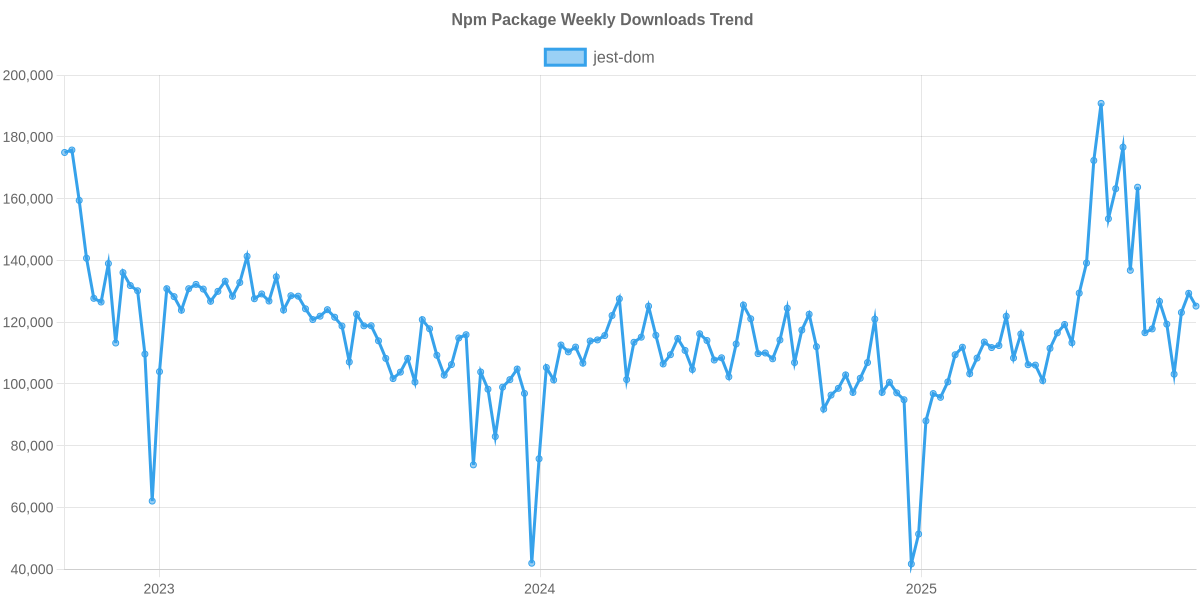🌟 Show real-time usage chart on jest-dom's README.md, just copy the code below.
## Usage Trend
[](https://npm-compare.com/jest-dom#timeRange=THREE_YEARS)
🌟 Show GitHub stars trend chart on jest-dom's README.md, just copy the code below.
## GitHub Stars Trend
[](https://npm-compare.com/jest-dom)
Stat Detail
Package
Downloads
Stars
Size
Issues
Publish
License
jest-dom
112,904
-
-
-
7 years ago
-
Popular Comparisons
jest-dom
README for jest-dom
jest-dom has moved to @testing-library/jest-dom. Please uninstall jest-dom and install @testing-library/jest-dom instead, or use an older version of jest-dom. Learn more about this change here: https://github.com/testing-library/dom-testing-library/issues/260 Thanks! :)